

Syracuse University
smmonnat@syr.edu

Clemson University
krbnsn@clemson.edu
Bio: Ken Robinson is an Associate Professor of Sociology at Clemson University. He is an Agribusiness Extension Specialist with the Sandhill Research and Education Center, Clemson Cooperative Extension. His teaching, research and outreach interests include rural sociology, entrepreneurship, sustainable development, and African American rural life. He is currently collaborating (or has collaborated) on statewide and regional, research projects, including an assessment of farmer/producer stress and contributing factors to stress and an extension outreach initiative focusing on Controlled Environment Agriculture and stakeholder impacts.

Utah State University
jessica.schad@usu.edu
Bio: Growing up in rural Southwest Montana, Jessica Schad has long been interested in the interplay of natural amenities and resources, population change, and community wellbeing in extractive and non-extractive rural contexts. She is a Professor of Rural and Natural Resource Sociology and Extension Specialist at Utah State University.
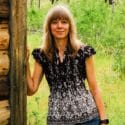
University of Wisconsin-Madison
kcurtis@ssc.wisc.edu
Bio: Curtis comes from a rural community in Northeastern Montana, which has shaped her interests in population dynamics, their relationship to economic and environmental forces, and their implications for the well-being of rural places and people, near and far, connected through time and space.

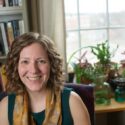
Ohio University
terman@ohio.edu
Bio: Rachel Terman is a rural sociologist specializing in the Appalachian region of the U.S. and focusing on intersecting identities, inequalities, and people’s relationship to place. She works with students, community leaders, and fellow researchers to better understand and create intergenerational community building in Appalachian Ohio.


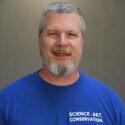
Iowa State University
arbuckle@iastate.edu
Bio: J. Arbuckle is a rural sociologist at Iowa State University. His research and extension efforts focus on improving the agronomic, environmental, and social performance of agricultural systems through better understanding of knowledge, attitudes, and other drivers of farmers’ and agricultural stakeholders’ decisions and behavior.
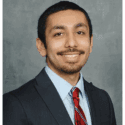
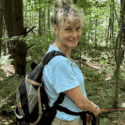
Affiliation
leanne.avery@oneonta.edu
Bio: Leanne began her career as a high school science teacher and is now Professor and Chair in the Department of Elementary Education and Reading at SUNY Oneonta. Her research has focused on photodocumenting rural children’s local STEM knowledge, the role of families and intergenerational knowledge in STEM education, and the impacts of critical place-based teacher development on classroom practice.
Leanne is also a rural first-generation college student, and she purposefully integrates her education with her rural roots to pave pathways for rural first-generation students to gain access to STEM higher education and careers. She is changing the urbanormative deficit perspective of the rural to one that honors the cognitive diversity of local rural knowledge and its complex connectivity to place. Her more recent work centers on braiding methodologies of rural Indigenous and rural non-Indigenous knowledge and an eco-centric lens to explore rural positionality.
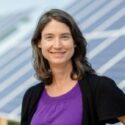

The Wilderness Society
rpilgeram@tws.org
Ryanne Pilgeram’s, PhD, career as a rural sociologist focuses on envisioning equitable and thriving rural communities. She was a Professor of Sociology at the University of Idaho, where she worked for nearly 15 years before transitioning to The Wilderness Society in 2023. At TWS, she focuses on federal policy at the intersection of public land conservation and transitioning fossil fuel communities. She is the author of numerous publications focused on inequality in agriculture, and she wrote Pushed Out: Contested Development and Rural Gentrification in the US West, a book that examines the structural causes of inequality in rural communities.

Clemson University
pierceg@clemson.edu
Bio:
Pierce Greenberg is an assistant professor in the Department of Sociology, Anthropology, and Criminal Justice at Clemson University. His research focuses on environmental and social issues in the rural U.S. He received his Ph.D. from Washington State University in 2018.
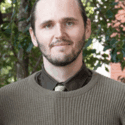
Auburn University
rwt0012@auburn.edu
Bio: Ryan Thomson is a rural sociologist at Auburn University. His research and extension efforts center around heirs’ property, inheritance, and land justice issues across the South. He is actively engaged in several outreach efforts to support rural landowners, serving as a trainer with the Southern Rural Development Center (SRDC), coordinator of the Alabama Heirs’ Property Alliance, and member of the Gullah/Geechee Sustainability Thinktank.
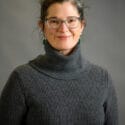
Department of Social Sciences, Michigan Technological University
ancarter@mtu.edu
Bio: Angie Carter studies rural food justice, community development, and agrifood systems using community-based and participatory research methods.

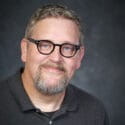
Syracuse University
jggrove@syr.edu

Pennsylvania State University
aqa6158@psu.edu
Bio: Ayse’s research focuses on the ways climate change and variabilities impact food security and migration, particularly in the rural and Indigenous communities of the U.S. and Canadian Arctic. Ayse has co-authored research on topics such as environment and migration, transportation, and tourism. Her dissertation investigates the impacts of climate change on subsistence and market-based food systems, as well as the complex decisions rural residents face about whether to stay or leave their homes.